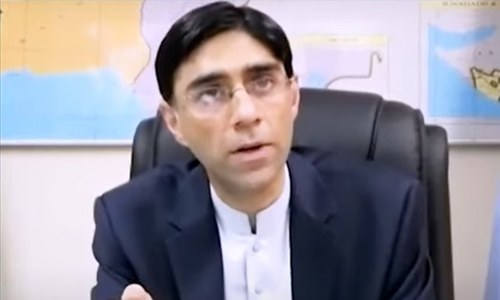Pakistan has criticised India — the United Nations Security Council (UNSC) president for the month of August — for denying Pakistan an opportunity to address the council as a neighbouring country with a direct stake in peace in Afghanistan.
On Friday, the council had convened an emergency meeting to discuss rising violence in Afghanistan. The meeting was called after Afghan Foreign Minister Haneef Atmar spoke to India’s External Affairs Minister S Jaishankar in the wake of Taliban’s assault on major cities and an attack on the residence of Defence Minister Bismillah Mohammadi in Kabul.
“We made a formal request for participation but it was denied,” Pakistan's ambassador to the UN Munir Akram told a press conference in New York hours after the UNSC discussed the situation in the war-torn country.
“Obviously, we do not expect fairness from the Indian presidency for Pakistan.”
Rejects allegations made by Indian, Afghan diplomats
Pakistan's UN envoy also strongly deplored allegations made by the Afghan and Indian diplomats that terrorists use Pakistan’s territory as a safe haven. He said that the country’s border with Afghanistan had been fenced and there was no free flow of people.
“We would never allow our soil to be used to destabilise Afghanistan and expect the same from Afghanistan,” Akram said.
Afghanistan sought the 15-member body’s meeting as the Taliban continue to achieve territorial gains in the country.
Fighting between the Taliban and Afghan security forces has raged since April when US and coalition forces began their withdrawal from the country. The withdrawal is set to be completed later this month.
Pakistan’s complete statement on the situation in Afghanistan will be circulated to the UNSC members, Akram said.
Rejecting allegations about safe havens and sanctuaries as well as cross-border movement of Taliban fighters as “mere fantasies”, the Pakistani envoy said: “Pakistan has eliminated terrorist groups from its soil. There are no safe havens in Pakistan.”
“Terrorism possesses a huge challenge to Afghanistan, to its neighbouring countries, particularly Pakistan,” Akram said, urging the international community to prevent Afghanistan from being used by Al Qaeda, Daesh and other international terrorist groups.
“Pakistan is especially concerned at the support being provided to the Tehreek-i-Taliban Pakistan and the Jamaat-ul-Ahrar (JuA) by a third country,” he said. “So, the shoe is now is on the other foot.”
Warns against 'spoilers'
The ambassador also slammed regional “spoilers” who were attempting to derail the Afghan peace process that Pakistan had facilitated.
He warned against spoilers “both within and outside Afghanistan” against their machinations to promote their vested interests.
“Some are thus taking intransigent positions in negotiations. Some informally have become isolated from the realities and explain their plight by blaming others. Then there are spoilers outside who do not want a political settlement.”
The Pakistani envoy said that Prime Minister Imran Khan had consistently called for a political solution as the only way to restore durable peace and security in Afghanistan.
“Pakistan therefore welcomed the international consensus which has emerged that the best means of securing peace and stability is through a political solution negotiated between parties to the conflict,” he said.
Pakistan, he said, was instrumental in bringing the Taliban to the negotiating table in 2019, and facilitated the conclusion of the US-Taliban agreement of February 2020.
“We helped to convene intra-Afghan negotiations in Doha in September 2020,” he said while highlighting Pakistan’s role in the peace process.
Pakistan, he said, also joined the troika — China, Russia and the US — to facilitate intra-Afghan talks and the Doha process.
It was a common presumption that the withdrawal of foreign forces would be accompanied by steps towards an intra-Afghan political settlement but the decision to divorce the two processes changed the parameters of the negotiating process and created disincentive for both Afghan parties to seek a compromise required for a political settlement, he said.
“We strongly believe that any military takeover or imposition by force of a government in Afghanistan will further aggravate and prolong the conflict.
"Pakistan, therefore, calls on the Afghan parties to eschew a military solution, to protect innocent civilian lives including women and children, and to engage in serious negotiations to realise a durable political settlement."
Ambassador Akram said Pakistan looked forward to the upcoming troika meeting in Doha on Aug 11 and expressed the hope that the meeting would contribute towards peace and stability in Afghanistan.

![“We made a formal request for participation in UNSC meeting but it was denied [by India],” Pakistan's ambassador to UN, Munir Akram, told a press conference in New York. — APP/File “We made a formal request for participation in UNSC meeting but it was denied [by India],” Pakistan's ambassador to UN, Munir Akram, told a press conference in New York. — APP/File](https://i.dawn.com/primary/2021/08/610e87f3a526e.jpg)














































